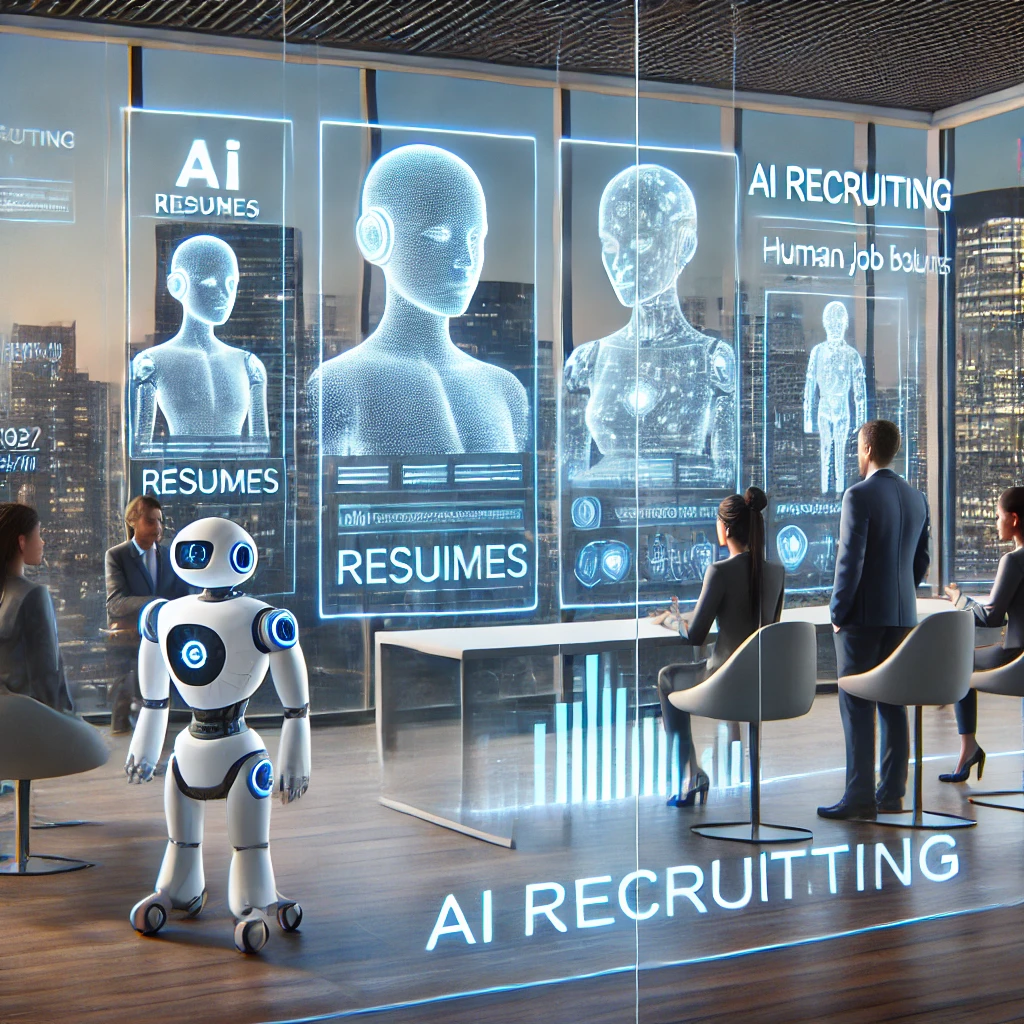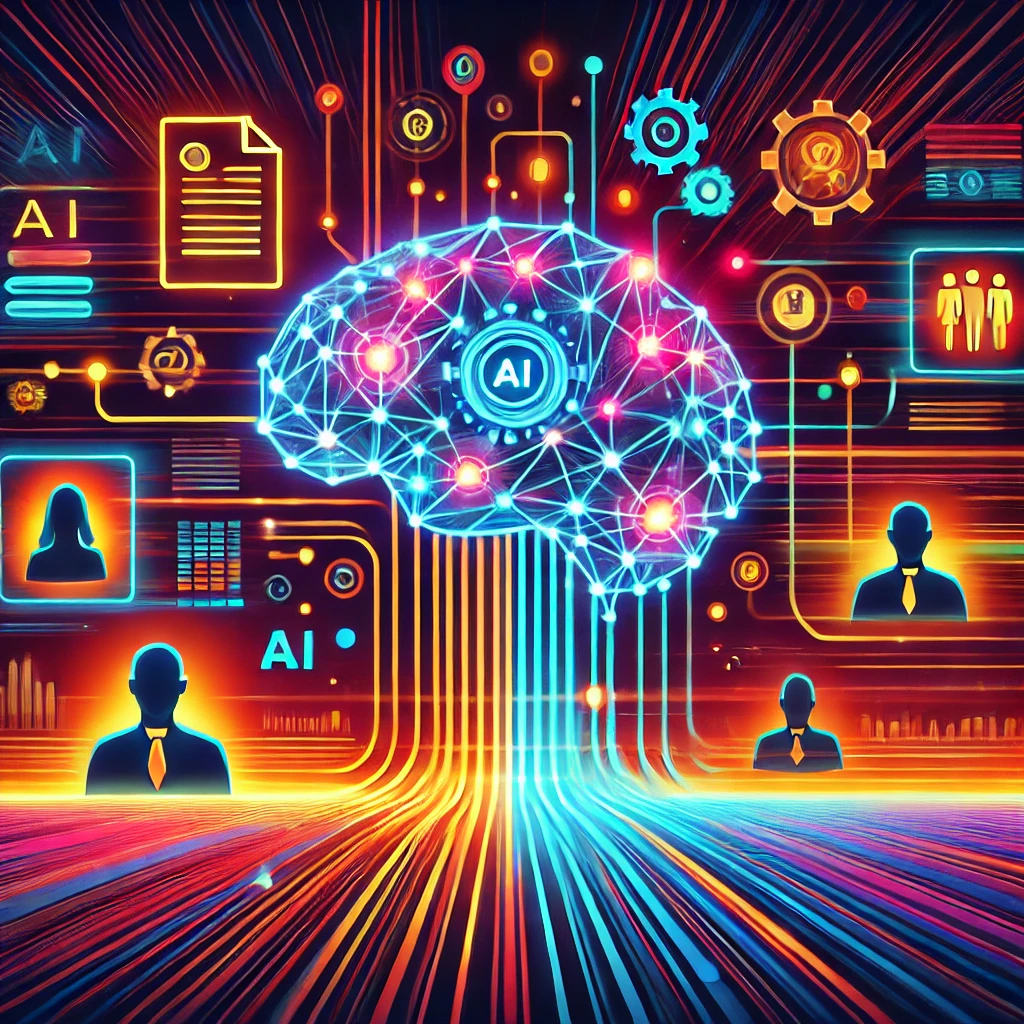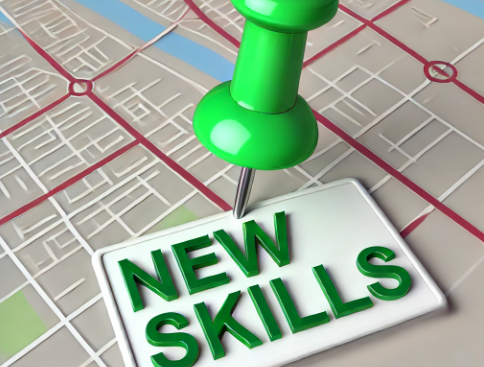
In recent years, artificial intelligence (AI) has become one of the key tools for recruitment teams looking for ways to improve the efficiency of their processes, personalize the candidate experience, and make data-driven decisions. According to SHRM, 88% of companies worldwide are already using AI in their HR processes in some way. This significant growth highlights how AI in recruitment is reshaping hiring strategies and enhancing recruiting AI methods.
AI has not only changed the way people interact with technology but has also significantly influenced the role of HR, particularly in key areas such as attracting, engaging, and retaining talent. Modern employees are beginning to understand the impact of AI, but even among experienced HR professionals, discussions about effectively using AI for hiring can vary significantly.
To remove the confusion, Talentbankai created “The Definitive Guide to Artificial Intelligence Recruitment.” The goal of this document is to clarify the role AI plays in recruitment processes, demonstrate its positive impact on HR and recruitment teams, and ultimately improve the organization’s overall performance.
What will you find in this guide?
This guide will help you better understand the role of AI in recruiting and reveal its potential for solving key challenges that recruitment teams face. Here are some key areas we will focus on:
- How AI impacts talent acquisition processes.
- How to leverage AI benefits and overcome key recruitment challenges.
- What AI-powered tools are available today, and how they can assist both recruiters and candidates.
- How AI helps organizations attract diverse talent and ensure inclusion.
- What the future holds for recruiters in a world increasingly shaped by AI in hiring.
What is AI in recruiting?
AI in recruiting refers to using artificial intelligence to automate routine, often repetitive tasks while providing personalization and data insights throughout the hiring process. At its simplest, AI can be defined as automation that enables us to solve large, complex, and repetitive tasks with high-quality results.
For instance, many industries use AI to process large amounts of data, improving efficiency, accuracy, and productivity. In recruitment, AI can be applied to tasks such as resume screening, candidate sourcing, and interview scheduling. The primary goal of AI recruitment is to save time on routine processes, allowing recruiters to focus on more strategic initiatives.
AI recruitment tools enable recruitment teams to find passive candidates more quickly, gain insights for decision-making, and achieve better outcomes, such as improving the quality of hires.

AI and automation
One of the main advantages of AI in recruitment is its ability to automate routine tasks. In modern recruitment, where recruiters often have to do more with fewer resources, AI-powered tools allow automating processes such as:
- Candidate sourcing: AI can automatically match candidates based on specific criteria, using resume matching and ranking technologies.
- Resume screening: AI can evaluate and rank candidates according to predefined criteria, making the process faster and more objective.
- Interview scheduling: AI integrates with calendars to automatically coordinate interview schedules for both candidates and recruiters.
According to Dice’s Recruitment Automation Report, many recruiters spend up to 30 hours a week sourcing resumes. In such circumstances, automating processes through AI becomes not only desirable but necessary for the efficient functioning of recruitment teams.
AI and personalization
Today’s job market demands a personalized approach to each candidate. Using AI for recruitment enables the creation of personalized experiences at all stages of the candidate’s journey, helping them reach their goals faster. Here’s how it works in practice:
- For candidates: AI delivers personalized job recommendations and dynamic content based on the candidate’s profile, search history, and relevant job openings.
- For employees: Similar tools are used to offer career development opportunities, training, and mentorship.
- For recruiters: AI helps find talented candidates based on skill matching, experience, and other relevant criteria.
This approach allows recruiters to build personalized recruitment strategies, which significantly improves the quality of interaction with both candidates and employees.
AI and data analytics
One of the key advantages of AI in recruitment is its ability to process large amounts of data and provide insights that help recruiters make more effective decisions. AI allows:
- Identifying new candidates and rediscovering existing ones.
- Receiving cloud-based recommendations.
- Understanding candidates’ intent and predicting their behavior.
- Analyzing recruitment trends and tracking the dynamic talent pool.
This data enables recruiters to spend more time with the most promising candidates, reducing both the time and cost per hire.
AI and bias control
AI in the recruitment process can also help combat bias. This is critical for companies that strive to develop diverse and inclusive workforces. AI’s ability to evaluate candidates based on skills and experience, rather than demographic characteristics, helps eliminate bias in the hiring process.
AI can also utilize video interviews with pre-set questions, ensuring that all candidates are evaluated on the same criteria. This guarantees that each candidate is assessed fairly and objectively.
Implementing AI in recruitment: Challenges
Like any innovation, implementing AI for recruiting comes with challenges. Here are some key aspects to consider:
- Data quality: AI requires large amounts of high-quality data to work effectively. Choosing the right platform with access to this data is critical to success.
- Technology adoption: People can be skeptical about AI, especially if they fear that technology will replace their jobs. It is important to explain to employees that AI is not replacing the human factor but rather helping to automate routine tasks.
- Team training: Before implementing AI, it is essential to provide training and support to employees so they can fully utilize the capabilities of the new technologies.
Available AI-powered tools
Today, the market offers many AI-powered tools that help improve recruitment processes. Here are a few of them:
- Personalization: Provides job recommendations based on skills, experience, and location.
- Smart search: AI-powered tools deliver accurate job search results, analyzing the candidates’ queries while considering their context and intent.
- Chatbots: Used to engage with candidates, helping them find the best jobs and answering their questions.
- Talent CRM: Allows building, tracking, and managing talent pools through AI analytics.
How AI will change the recruiter’s role
Despite fears that machines might replace humans, AI will actually help recruiters become more effective. By automating routine processes, recruiters will be able to focus on the more strategic aspects of their jobs, such as:
- Building relationships with candidates: With AI, recruiters will have more time to interact with candidates, helping to better assess their fit within the company culture.
- Collaborating with hiring managers: AI provides data visualizations that help recruiters and hiring managers better understand hiring quality and make informed decisions.
Conclusion
Artificial intelligence is already playing a key role in transforming recruitment processes. HR teams are gaining unprecedented opportunities to automate routine tasks, enhance personalization, and make data-driven decisions. AI tools allow recruitment teams to work more efficiently, find top talent faster, and create a more inclusive workplace.
By adopting AI-powered solutions, organizations can not only improve their recruitment processes but also better align their talent acquisition strategies with their overall business goals. Embracing AI technology will enable HR professionals to focus on what truly matters: building meaningful relationships with candidates and employees and ensuring long-term success for the organization.





Leave a Reply